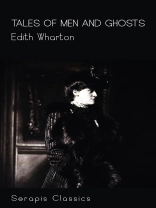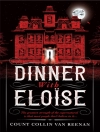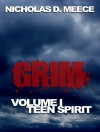EDITH WHARTON (1862-1937) was one of the most remarkable women of her time, and her immense commercial and critical success-most notably with her novel ‘The Age of Innocense’ (1920), which won a Pulitzer Prize-have long overshadowed her small but distinguished body of supernatural fiction. Some of her finest fantastic and detective work (which oft times overlap) was first collected in 1909 in ‘Tales of Men and Ghosts.’ The psychological horror is as important as the literal one here, and subtle ambiguities characterized by the best of Henry James’s work (such as ‘The Turn of the Screw’) are also present in Wharton’s character studies, such as ‘The Bolted Door.’ Is the protagonist a murderer, or is he mad? In the end it may not matter, for it is his descent into madness and obsession that gives the story its chilling frisson. Other tales present men (or ghosts, or what men believe to be ghosts) in a variety of lights, from misunderstood monsters to vengeful spirits to insecure artists. If you have never read Edith Wharton’s fantasy work before, you will be captivated and delighted.
เกี่ยวกับผู้แต่ง
Edith Wharton (January 24, 1862 – August 11, 1937) was an American novelist, short story writer, and designer. Wharton combined an insider’s view of American aristocracy with a powerful prose style. Her novels and short stories realistically portrayed the lives and morals of the late nineteenth century, an era of decline and faded wealth. She won the Pulitzer Prize for Literature in 1921, and was the first woman to receive this honor. Wharton was acquainted with many of the well-known people of her day, both in America and in Europe, including President Theodore Roosevelt.












